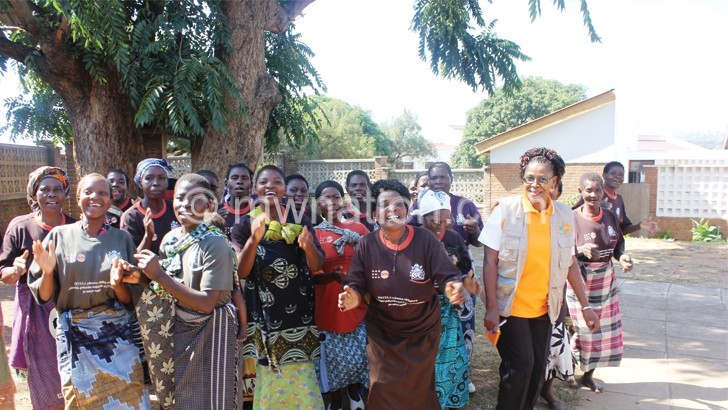Ending fistula among teens
At 18, Bertha Limbuli gave birth through an operation that left a hole in her pelvis.
That was in 2015. The operation may have saved her life, but the baby died.
The young woman from Phalombe calls the misfortune a double-edged sword which drilled holes in her heart and womb.

“The baby died, but the complications left a hole between my birth canal and urinary bladder. I started urinating uncontrollably and I suffered a lot of ridicule until I was treated at Bwaila Hospital in Lilongwe in 2016,” she recounts.
Limbuli’s suffering mirrors one of the dehumanising dangers faced by adolescents who marry and give birth before their bodies are ready for child-bearing.
According to the 2015 Malawi Demographic and Health Survey (MDHS), 47 out of every 100 women in the country marry before their 18th birthday and 29 percent of adolescents carry risky pregnancies.
Limbuli was shunned by her friends and relatives because she was wetting herself and emitting a foul smell.
She was haunted by exclusion and demeaning names that echoed everywhere in her village of Ngaliya in Traditional Authority (T/A) Nkhulambe.
This is the plight of almost one out of 100 women in the country who endure humiliating effects of fistula.
Phalombe District Hospital has registered 72 cases since 2015, says district health officer Ketwin Kondowe.
“Every year, 24 women are reported to have developed obstetric fistula,” he says, calling on women to delay child birth and remain in school until they achieve their potential.
Ministry of Health chief director Beston Chisamile, Limbuli’s suffering shows how teen pregnancies expose adolescent girls to devastating effects of obstetric fistula.
“These children [teenagers] are not mature to give birth. This creates problems in delivery,” he warns.
T/A Nkhulambe calls for more efforts to end widespread child marriages and teen pregnancies which are widespread in her area.
“It is not surprising that most women with fistula in Phalombe come from this area,” she says.
However, poor access to health care leaves rural women particularly at risk.
Besides, few hospitals in the country repair fistulas.
“Long distances discourage pregnant women from going to hospital for delivery. They either delay to reach hospital or deliver at home. Both scenarios put their lives at risk of having obstructed labour, a risk factor for fistula,” says district fistula coordinator Phakuyeyi Zakeyu.
In 2016, Limbuli walked almost 40 kilometres to get to Phalombe Health Centre.
They were first referred to a treatment camp organised by United Nations Populations Fund (UNFPA) at Mulanje District Hospital, where a visiting surgeon diagnosed her with a fistula requiring specialist attention.
“I waited for the operation to heal before going for fistula treatment. Afterwards, my husband escorted me to Mulanje where they referred us to Bwaila Fistula Centre [Lilongwe],” she narrates.
She spent a month at the centre, learning business skills in the process.
“We offer women on treatment some business skills to ensure they are economically empowered when they go back home,” says UNFPA national programme officer Grace Hiwa.
Limbuli is happy with the business training, but she considers herself lucky that her husband, Costa, stood by her throughout the struggle with fistula.
Costa says it was worthwhile.
“When my wife had fistula, the community discriminated against us. I became a laughing stock for clinging to a woman who was wetting her clothes and beddings. I am happy that she is fine and many people buy from us, thanks to a business we started after receiving a solar power system from Bwaila,” he says.
The salvation from fistula marked a turnaround in the once maligned family.
The fistula survivor and her husband are now UNFPA ambassadors who raise awareness in the district. They have visited several villages in T/As Nkhulambe and Nazombe where most fistula cases are reported.
On June 21, the family visited Phweremwe Village in Nkhulambe where they warned their peers against teenage pregnancies and encouraged those with fistula to go for treatment.
“We approach women who feel discouraged to go to hospital. We tell them they are now lucky because UNFPA opened a fistula centre at Mulanje District Hospital in April,” she explains.
Only 40 percent of Malawians are aware of fistula, according to MDHS.
“We use these young champions to increase access to fistula treatment in the country. They go out to find young women with fistula in the villages. Some of them feel ashamed to go to hospital. But when a fellow youth approaches them, they obey,” says Hiwa.
The youthful champions work closely with chiefs, who have put in place by-laws banning child marriages.
Families that marry off teenagers pay a fine of K20 000, says chief Nkhulambe. n





